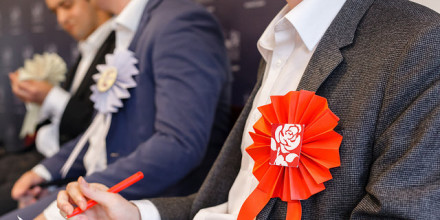
By Will Straw and Sally Keeble
The 2015 general election was Labour’s for the taking. The coalition was an unpopular government presiding over a period of falling living standards and stagnant growth with a prime minister who many people felt was out of touch with their lives. But the Tories ruthlessly targeted the voters they needed with a clear electoral strategy and huge resources, and made their arguments count where it mattered. In the end their message was direct while Labour’s was narrow and predictable. Instead of breaking through or even causing a second hung parliament as many had expected, Labour went backwards.

The price is a much steeper battle in 2020. Labour needs an 8.8 per cent swing to win next time round – close in scale to the 10 per cent recorded in the landslide of 1997. Learning the lessons from our defeat is critical to tackling this challenge and putting Labour in a position to win in 2020.
Our hopes were dashed in part by a failure to win ‘key seats’, like Rossendale and Darwen, Northampton North and Thurrock, which were lost in 2010, and others, like Southampton Itchen, which were held narrowly five years ago.
Campaigning in these seats was political trench warfare. Candidates like us fought for several years, many of them full time, contacting thousands of voters, delivering millions of leaflets, and backing this up with community action.
These seats were not lost because of individual policies or campaigns failures – instead, we were let down by a lack of coherent national message. Our ‘offer’ was seen as out of touch and transactional. Voters’ triple concerns about our leader, our position on the deficit, and the threat of being propped up by the SNP meant we had a mountain to climb.
As John Curtice has written in Juncture, these concerns, particularly around the economy, are what led to Labour losing to the Tories among over-65s by 47 per cent to 23 per cent. There will be 1.5 million more voters aged over 65 in 2020 – the need for a new approach is evident. Meanwhile, despite the focus on the ‘cost of living crisis,’ Labour failed to capitalise on the votes of economically disaffected people who had not felt any benefits from the economic upturn.
There will be no quick fixes: Labour faces different challenges in different parts of the country and among different groups of voters. And by 2020, much will have changed – the Tories are now only constrained by their backbenchers in realising a manifesto they did not expect to implement and devised only to trade off in coalition talks. Severe cuts that we know are coming will mean lower taxes, fewer public sector workers, and another assault on the welfare state. Meanwhile, older voters are already drawing down their pension pots to pay off mortgages or help their children instead of buying the hated annuities. In London they will soon be able leave their houses to their children without paying inheritance tax.
To win a hearing and a chance of power, Labour must now tackle its policy weaknesses and electoral blind spots – especially around older people and private sector workers – and project a greater sense of fitness for office. We need to show that we can respond to people’s concerns about immigration and identity. Caring about public services and the welfare state is not enough – we have to demonstrate how we will reform both, rather than either defending the status quo or adopting Tory policies. And we must show that we are comfortable with the thousands of people in our constituencies working in the private sector or running their own business.
Without reaching out to all parts of the country and showing we are truly a ‘one nation’ party, there are simply not enough seats to win. Overcoming all these challenges is possible. But after our massive electoral loss there is no time to lose.
Will Straw was the Labour candidate in Rossendale and Darwen, and Sally Keeble was the Labour candidate in Northampton North. They have edited a new pamphlet, ‘Never Again: lessons from Labour’s key seats’, published by the Fabian Society, collecting articles from candidates in marginal seats.




More from LabourList
‘I was wrong on the doorstep in Gorton and Denton. I, and all of us, need to listen properly’
‘Why solidarity with Ukraine still matters’
‘Ukraine is Europe’s frontier – and Labour must stay resolute in its defence’